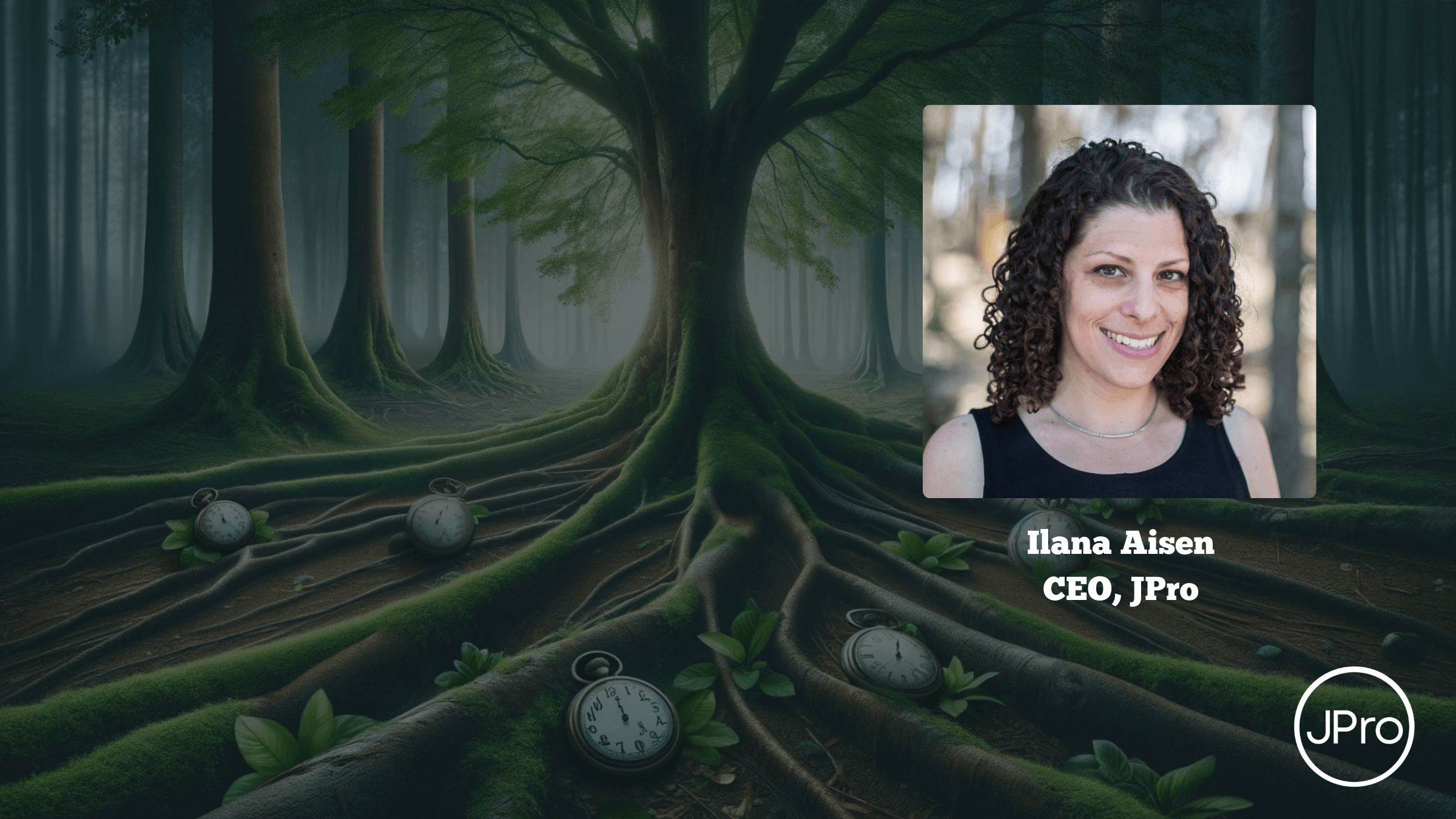Equity by Design, Behind-the-Scenes
Jewish communal professionals are feeling unprecedented levels of stress and vulnerability as they navigate a landscape that is heavy with fear, loss, and uncertainty.

In June 2022, one month after JPro22 in partnership with Jewish Federations, Gamal Palmer and Stacey Aviva Flint wrote about Jewish Equity, Diversity, and Inclusion (JEDI) at the Jewish nonprofit sector’s flagship conference:
“Something dramatic happened in Cleveland last month… As Jewish people of color, we saw reflections of ourselves throughout the conference from the co-chairs, speakers, and workshop presenters. That was particularly noticeable in the demographics of the 1,200 attendees, which mirrored the diverse demographics of the Jewish community, likely for the very first time at a major, national Jewish event.”
Fast-forward to 2024 and JPro’s convening in Cleveland feels like a lifetime ago. In the wake of October 7th, the climate for JEDI work is increasingly fraught with challenges. Jewish communal professionals are feeling unprecedented levels of stress and vulnerability as they navigate a landscape that is heavy with fear, loss, and uncertainty. Still, I know we must deepen and expand our work for equity to foster cultures of belonging in Jewish spaces — even when it feels messy and hard. The lessons we learned in 2022 still feel deeply relevant today.
Go slow and be specific: Even after two years of organizational learning and work on JEDI, with many experts (notably, Imani Chapman, our DEI consultant), we had to build new processes and systems. This included determining how to collect and use participant data. We sweated the small stuff.
Everyone is accountable: We designated one person as our JEDI lead. Their role was to ensure that each member of the team understood how every element of their work was essential to our equity and belonging commitments.
Expect mistakes: During the planning process, the JEDI experts on our team identified errors and missed opportunities. We had to undo decisions and design workarounds, which was challenging and time-consuming. For example, the schedule was fixed before we considered affinity groups. Adding them late meant that the meeting time was not ideal. We did extra work to mitigate the challenge. Happily, after we introduced affinity groups, a registrant suggested an affinity group for non-Jewish participants, a segment of our audience for which we hadn’t yet designed. This evolved into JPro’s first virtual affinity group and led us to launch several others.
As we plan for JPro25 in partnership with Jewish Federations, happening in Baltimore from May 5-7, 2025, we will begin with the understanding that there is still and will always be much more to learn. More than ever, all Jewish communal professionals deserve to feel seen, safe, respected, and loved. When we commit to equity with rigor and discipline, I know we will get there.
“Moving Through the Wilderness: Recommitting to Equity After 10/7” is a collection of brief essays born out of Elevate: An Executive Leadership Equity Accelerator. Elevate launched in May 2023 and its first cohort consisted of eleven CEOs of influential Jewish institutions, who are committed to the Jewish value and responsibility of equity within our community. The idea for this project emerged in Montgomery, Alabama during one of Elevate’s in-person convenings in early 2024. To learn more about Elevate and the program’s co-founders and leaders, Gamal J. Palmer and Catherine Bell, click here.
Moving Through the Wilderness is presented in partnership with the Forward, the leading voice in Jewish journalism. Read more essays in the collection.













